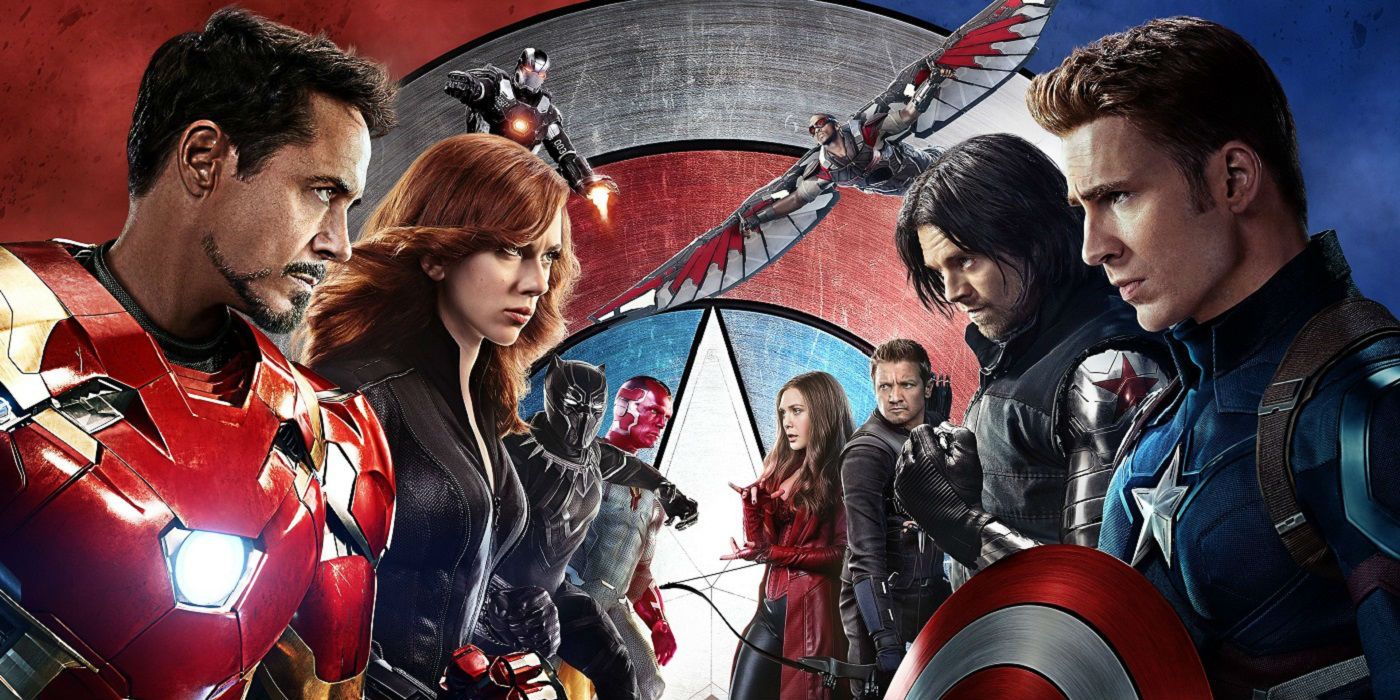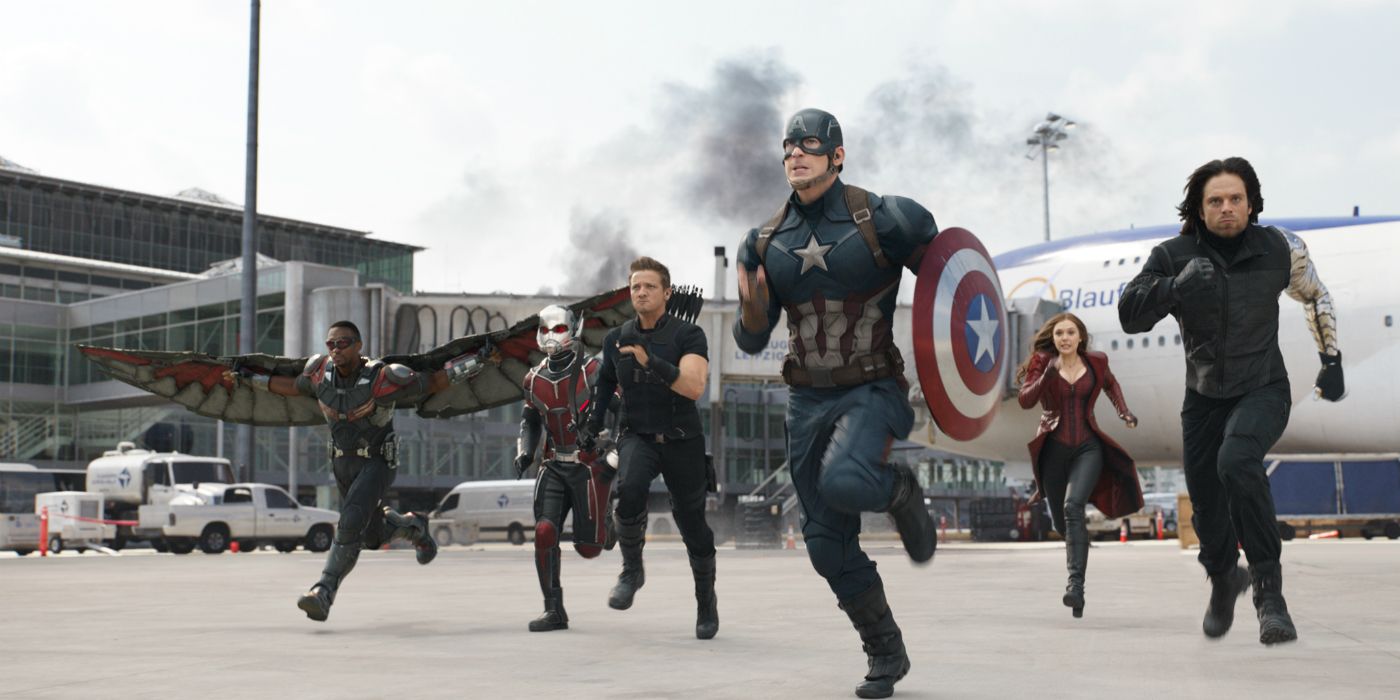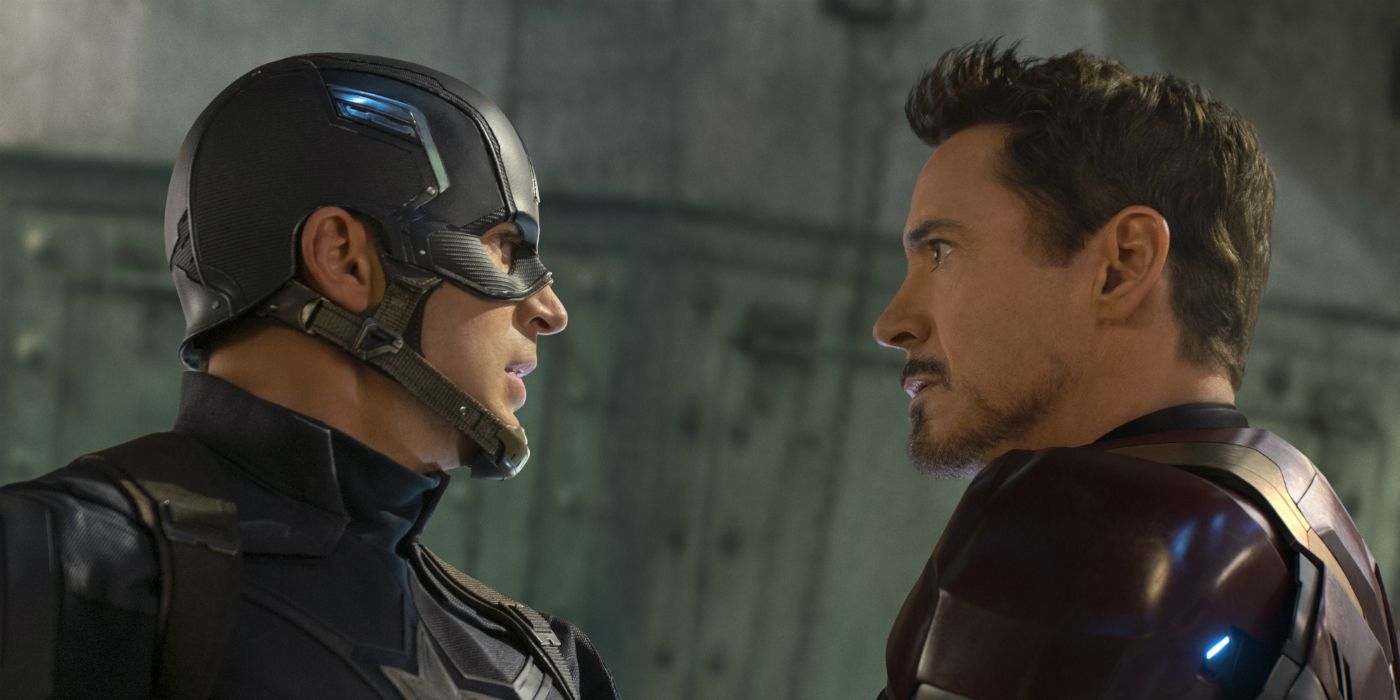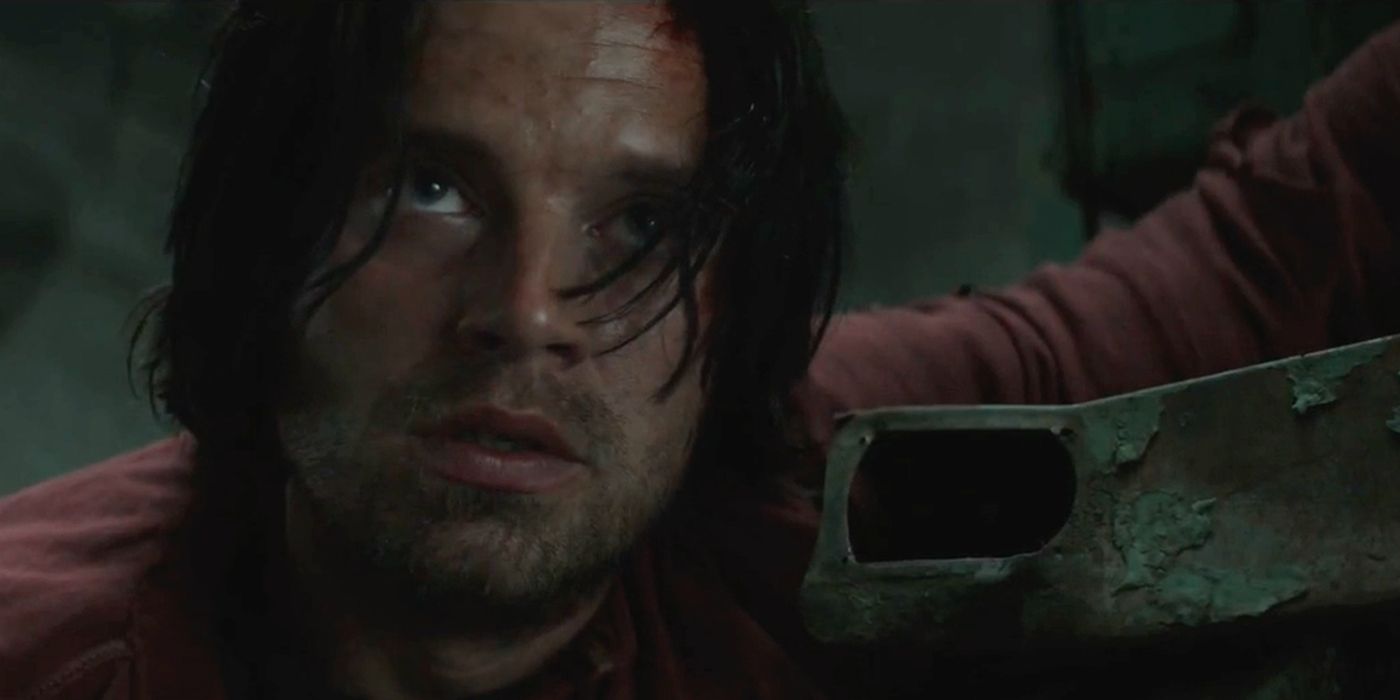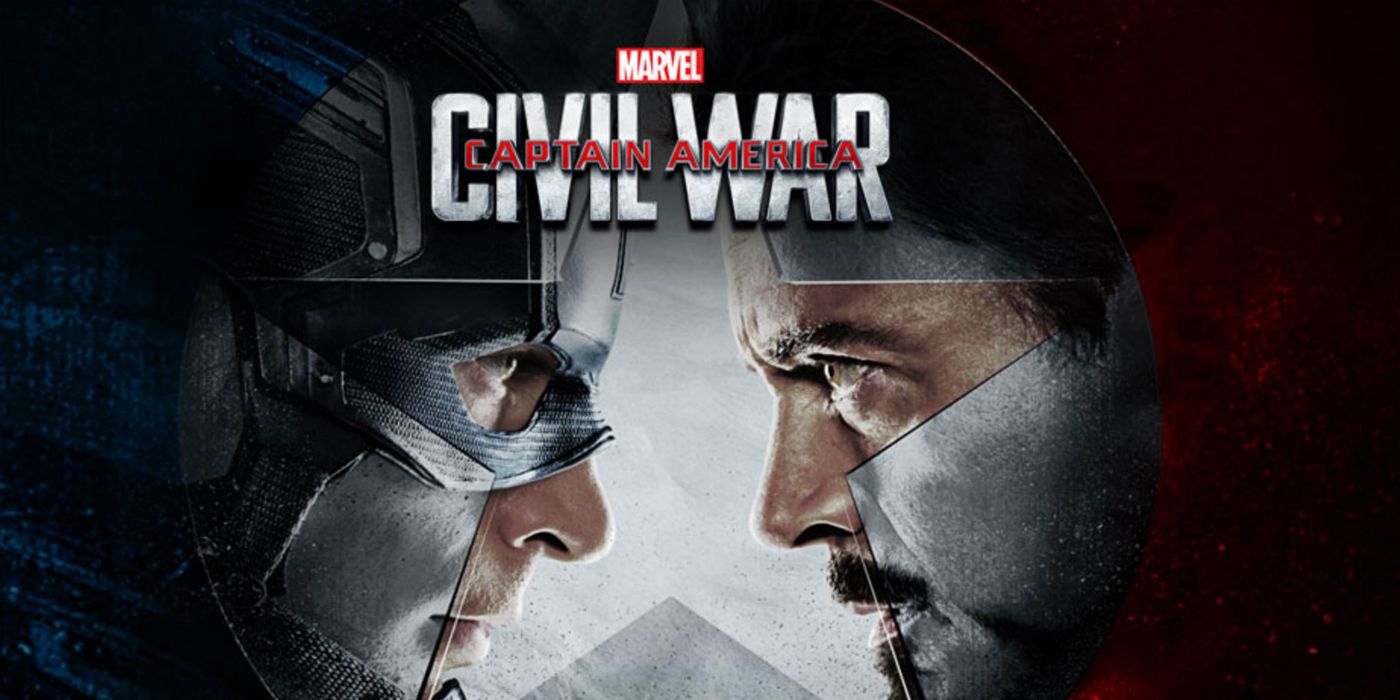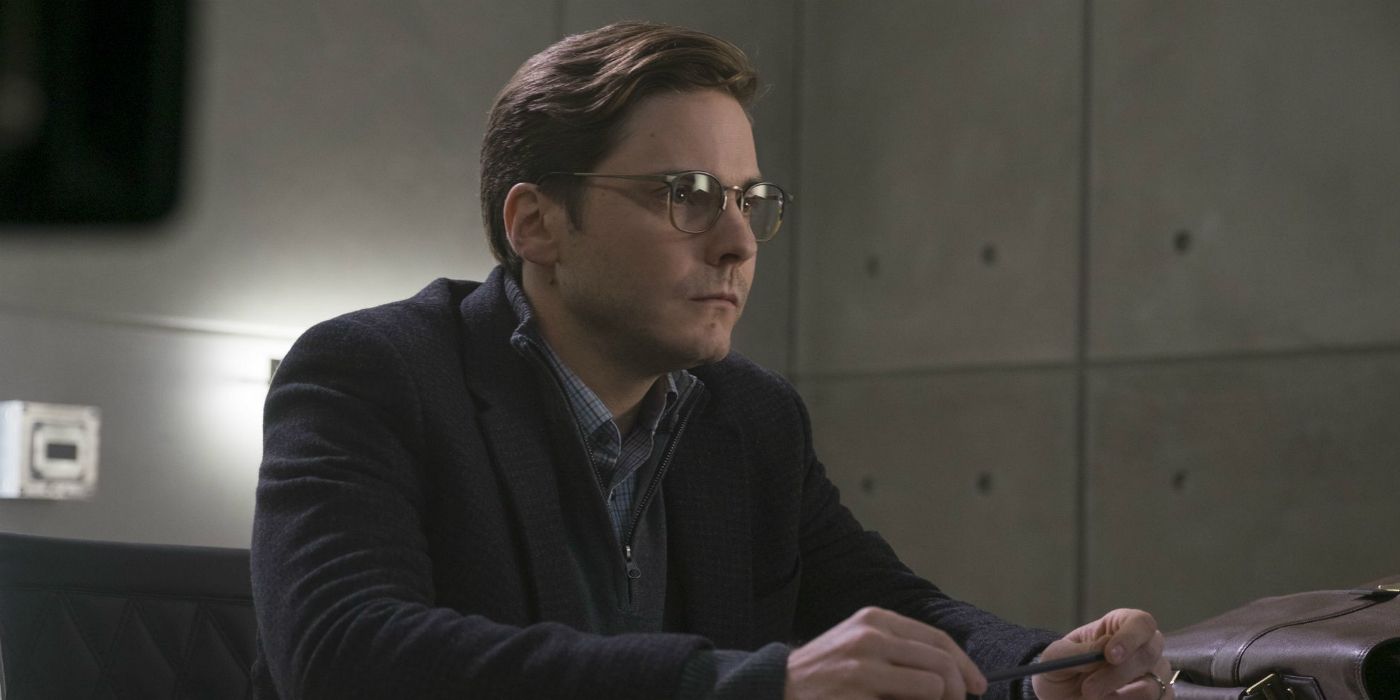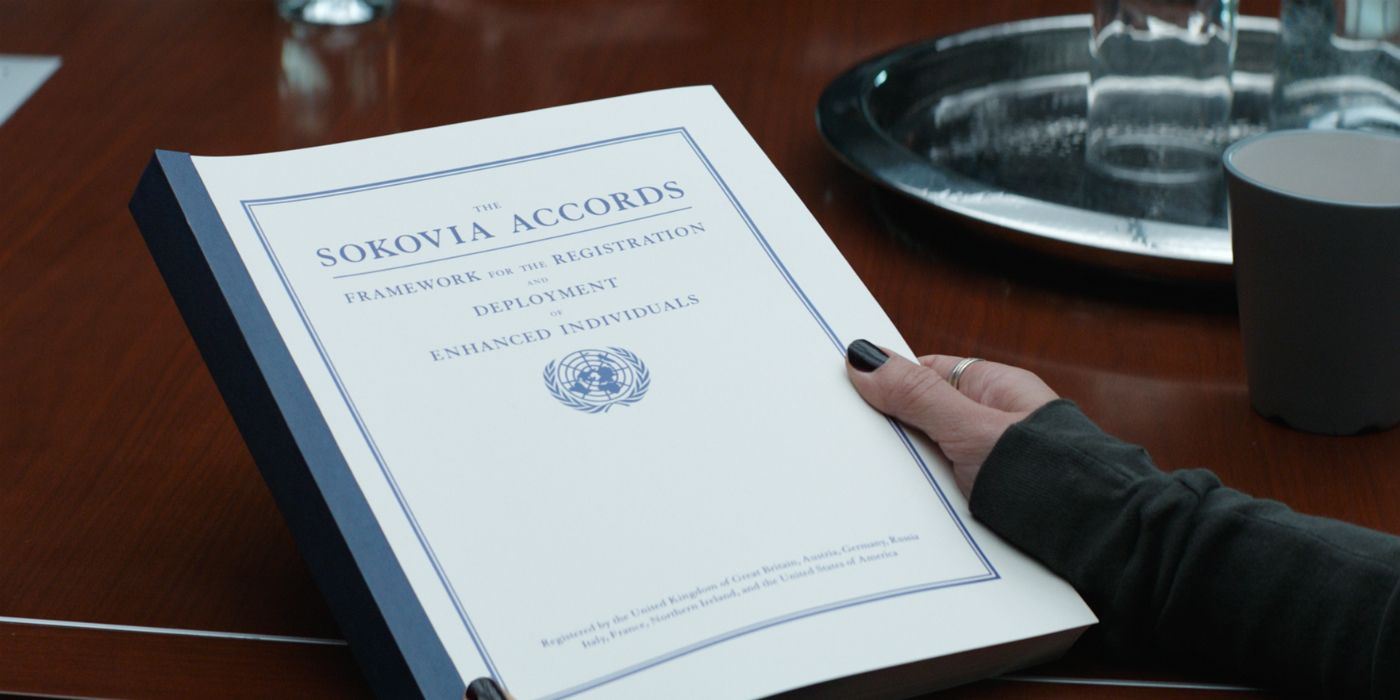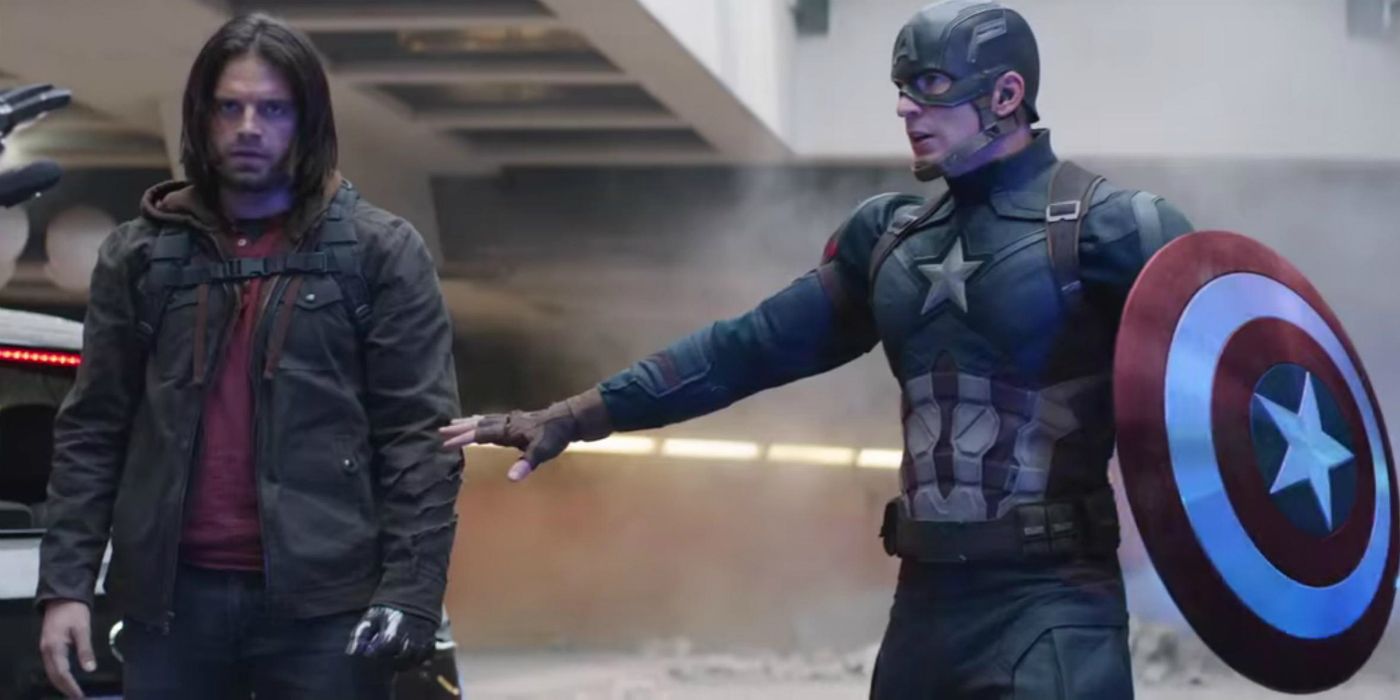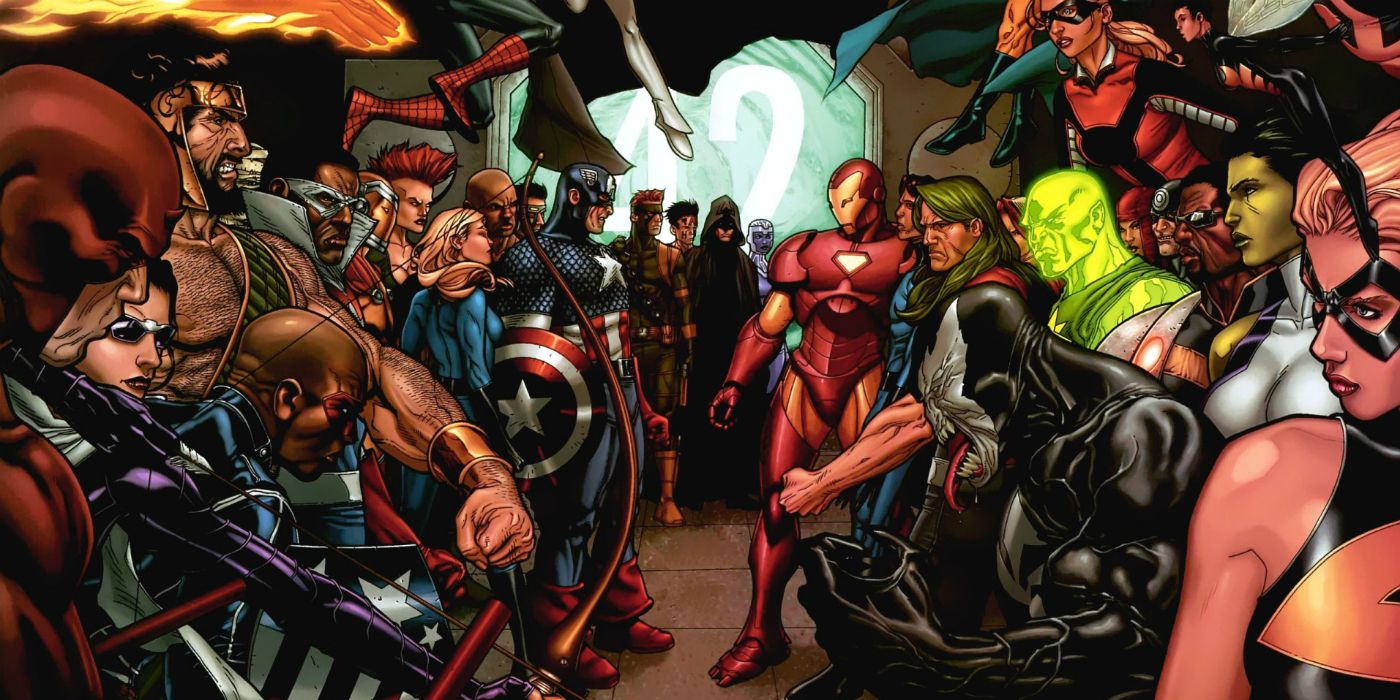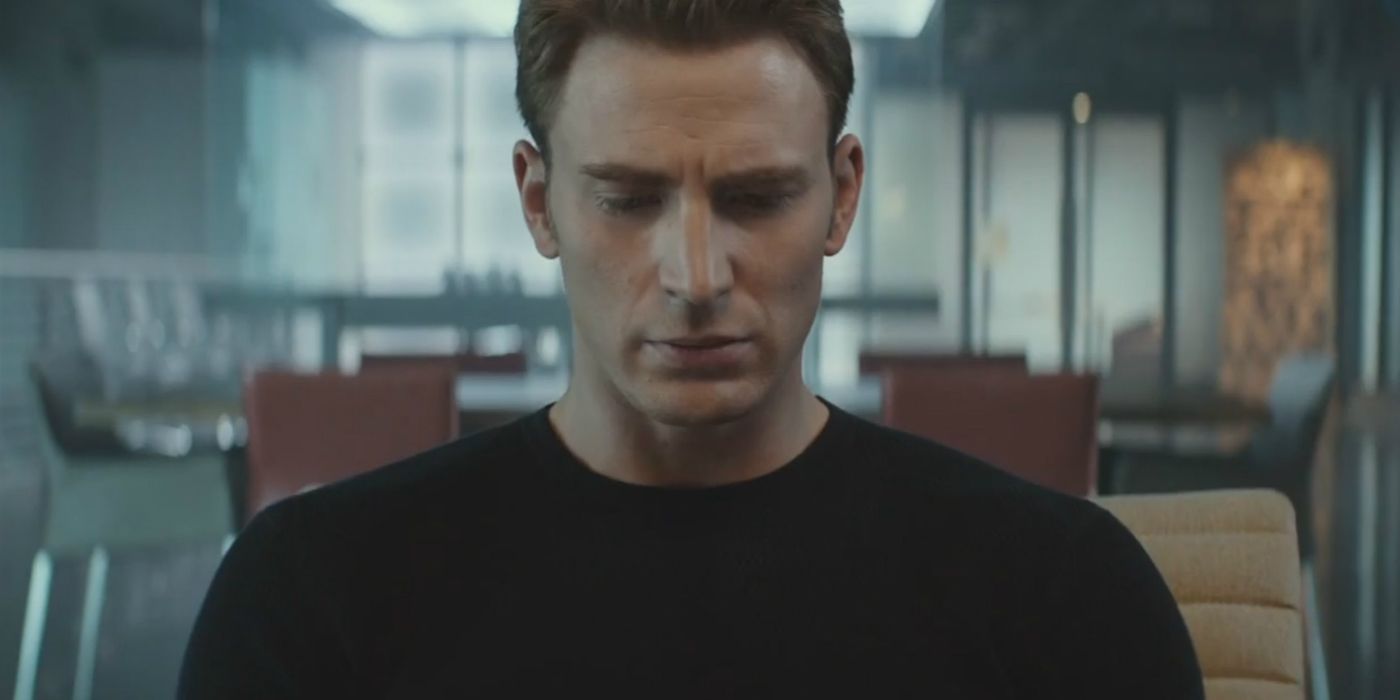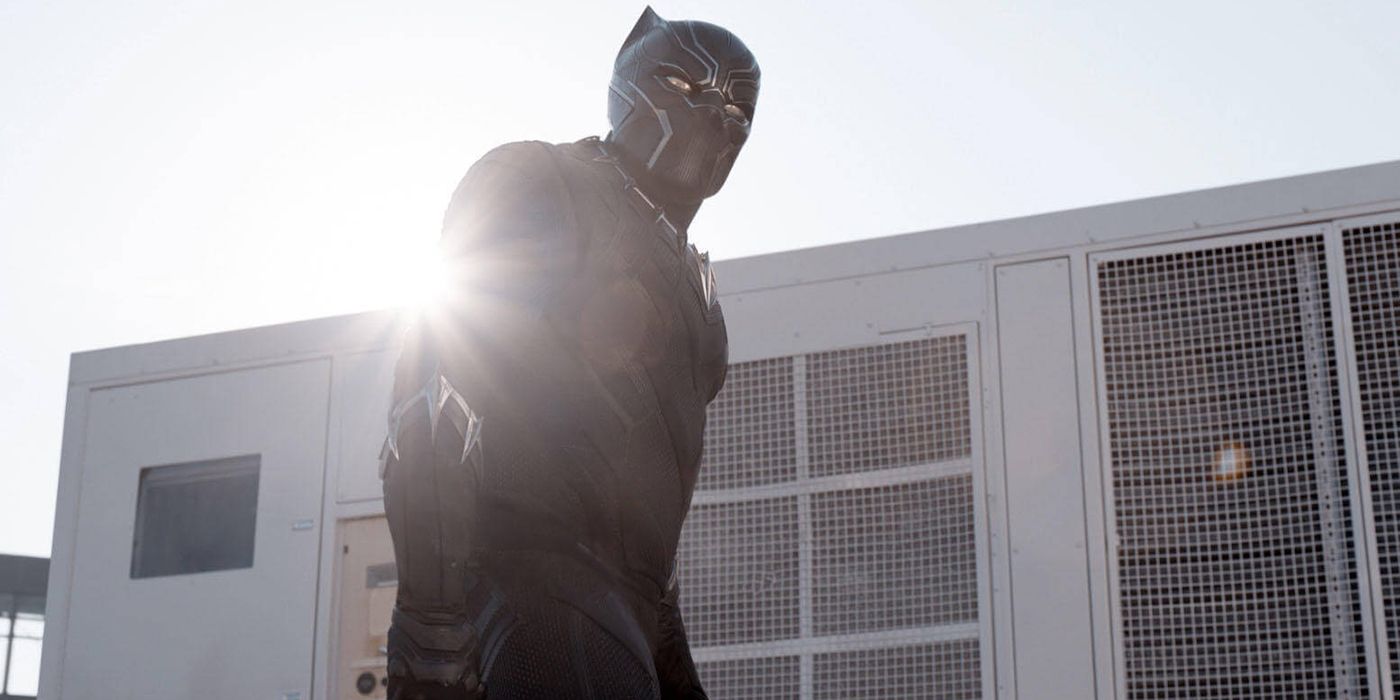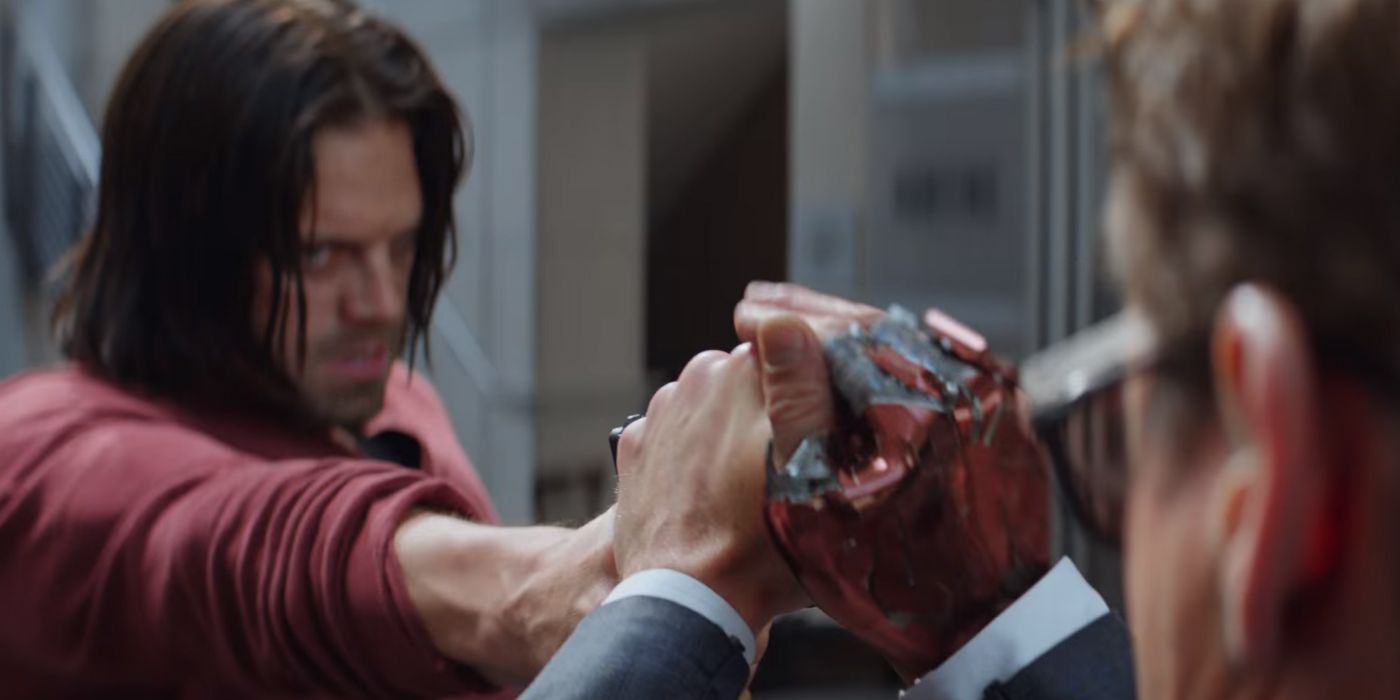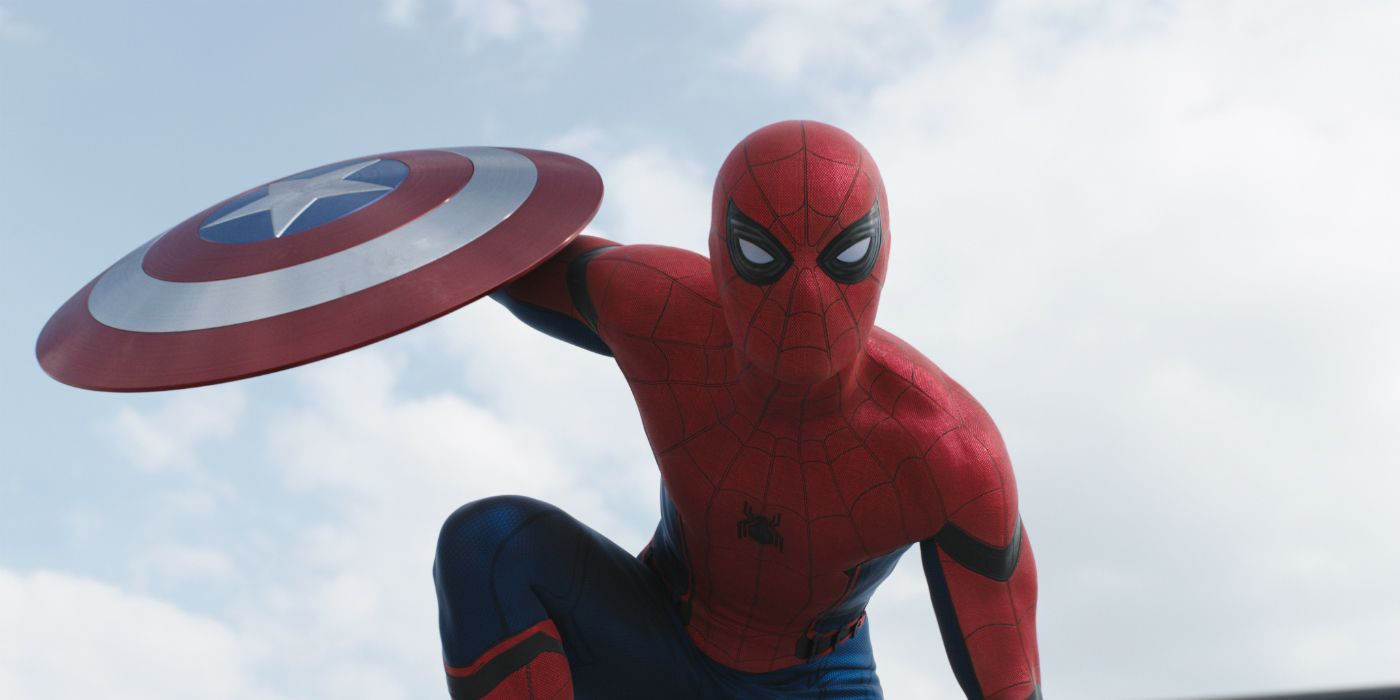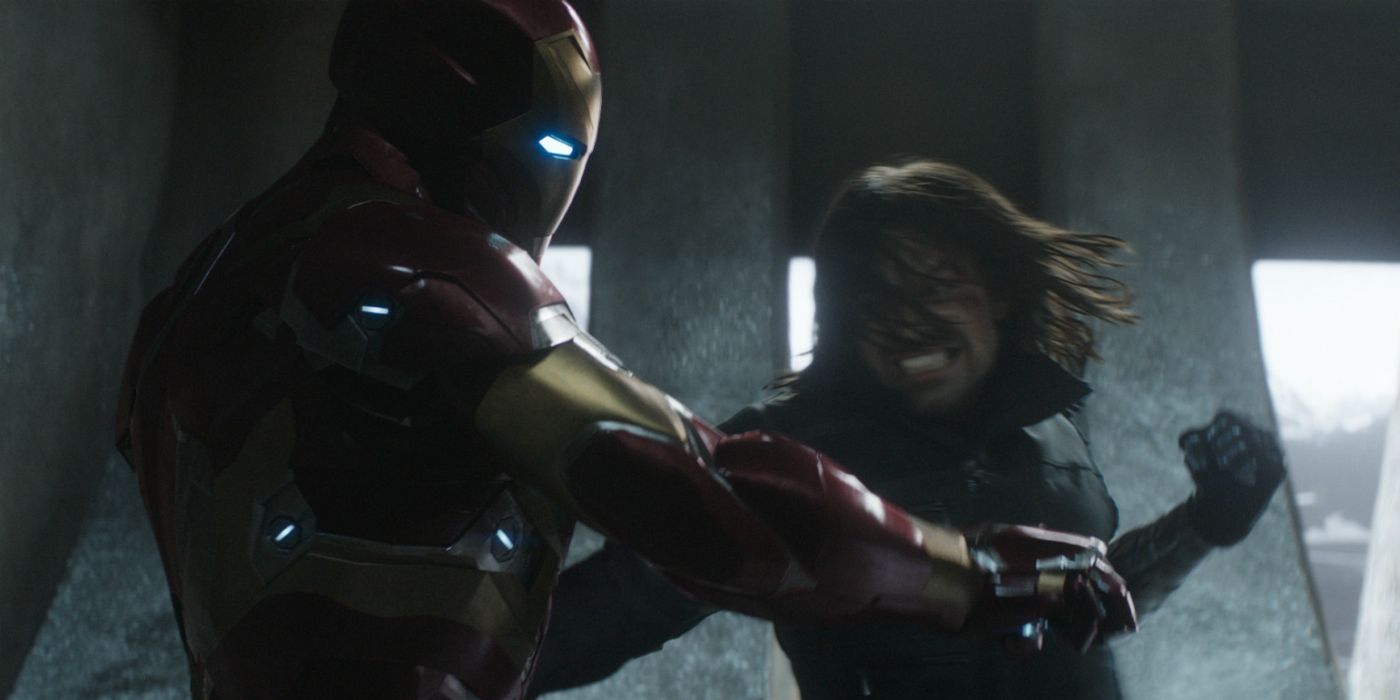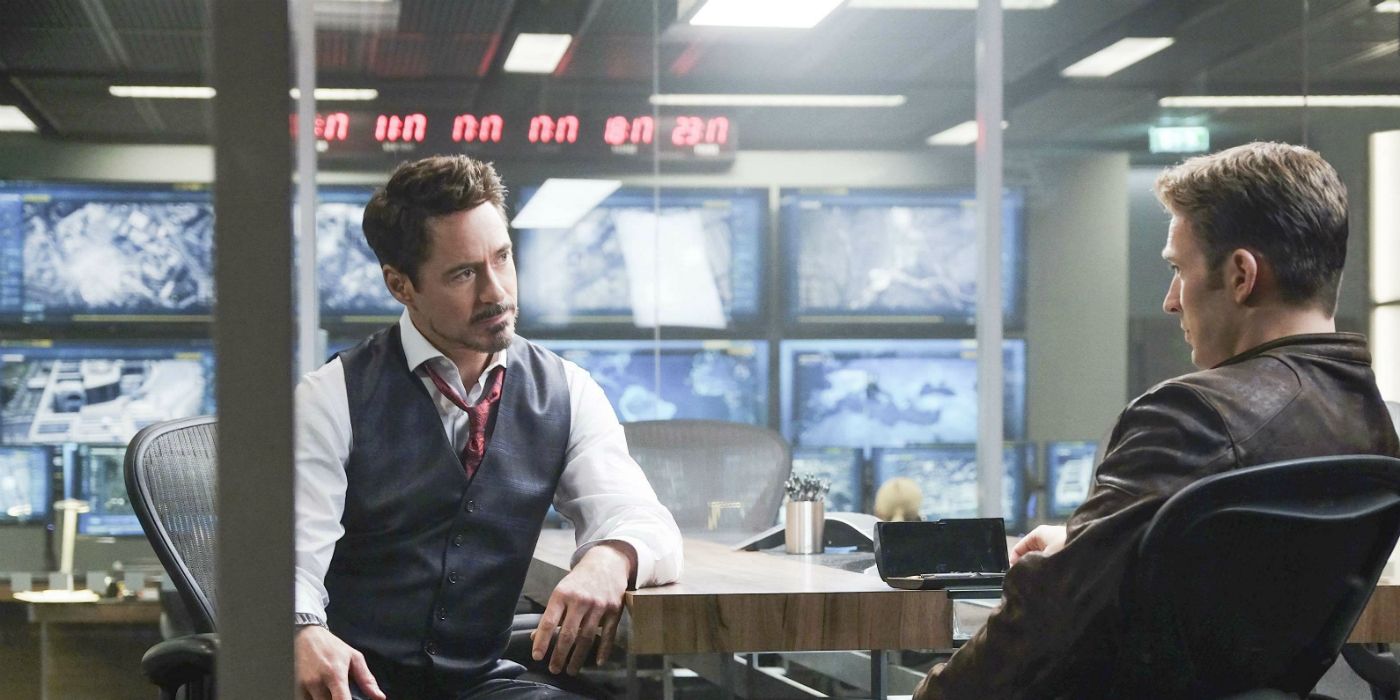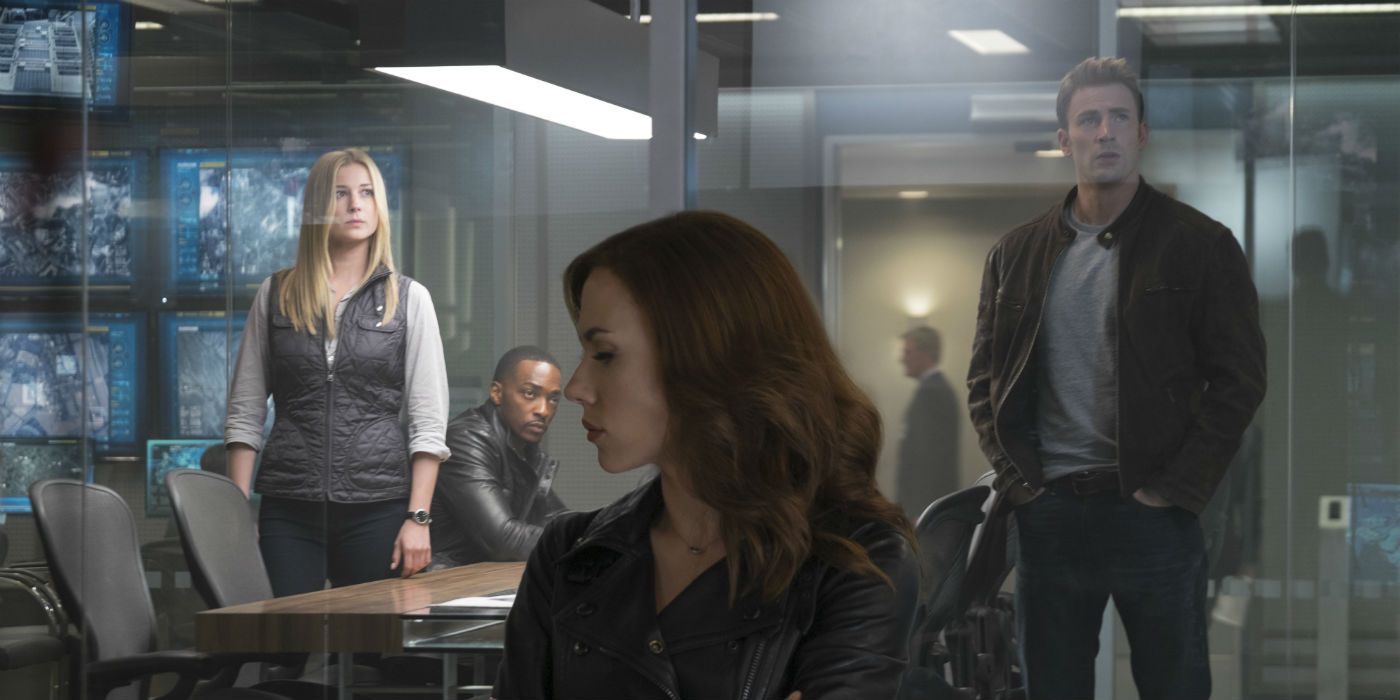"Captain America: Civil War" was the culmination of Steve Rogers' journey from decorated World War II hero to full-time Avenger. By this point, Rogers is one of the leading faces of the Avengers, becoming an iconic face and on-field leader for the group of heroes. But Rogers would soon be faced with a moral dilemma as the damages and lives lost during the Avengers' many battles can no longer go unignored by the government.
RELATED: 15 Reasons Winter Soldier Is The Best Captain America Movie
Faced with a decision that would have wide-reaching implications for himself and the Marvel Cinematic Universe, "Civil War" stands out from its predecessors as truly the finest Cap film. It brought long-simmering feelings to the forefront while challenging the morals of our heroes and left them to make some very grave choices. That being said, let's take a look at what makes "Civil War" your favorite Cap flick!
15 JUGGLES LARGE CAST
Normally, the only times to worry about a large cast of superheroes is an Avengers film, and one of the primary concerns about this film was the number of characters "Civil War" was tasked with using. However, the Russo brothers were up to the task and performed them quite admirably. Having to introduce two new characters into the MCU while bringing in other fellow Avengers, Civil War manages to not feel too crowded and lose its plot amongst the large cast.
It also simultaneously provides the right amount of spotlight to the proper characters that needed it the most, which kept the story interesting and engaging. Black Panther's continual quest for revenge against Bucky Barnes coupled with Iron Man's parallel struggles and Black Widow's conflict over who to side with in keeping the Avengers together through the Sokovia Accords made for a strong character-driven narrative that has made the MCU so successful over the last decade. "Civil War" was easily among the most ambitious of the Captain America films, and that ambition culminated in the best Cap film to date, especially when it comes to the impact he has on other heroes around him.
14 A CENTRAL CAP STORY
In addition to the large casting, the addition of Iron Man in "Civil War" could have easily taken the majority of the focus away from Captain America. But no amount of casting or quips from Tony Stark took away from what this film was: a central Cap story. Many are quick to call this more of an "Avengers 2.5" movie than a Cap story. However, whereas the first two films challenge Cap in what kind of hero he seeks to be, "Civil War" challenges his morals to an entirely different extent that opens the long-awaited floodgates with Iron Man.
In a sense, Cap is perceived as the bigger hero of the story in advocating for the Avengers' independence, while Iron Man could be seen more as the antagonist for siding with the Accords and limiting their freedoms. This film also signifies his transformation as a hero, as Cap goes from the normal "by the book" icon to something of a renegade vigilante, vowing to act on his own rules and morals alone. Cap remains central to the entire film, and without his narrative guiding the plot, "Civil War" doesn't have as big an impact.
13 BUCKY'S RETURN
"Winter Soldier" was indeed instrumental in introducing Bucky into the MCU as the steel-armed, Hydra-trained assassin capable of matching Cap in single combat. "Civil War" was instrumental in providing Bucky with more than a mere scowl and aesthetic. Viewers are given more of the psychological state he is still left in after decades of imprisonment and assassinations.
After the fall of Hydra, Baron Zemo's entire plan centers partly around framing Bucky and using his old mind-programming against the Avengers. Throughout "Civil War," Bucky is very much the antithesis of Cap, as he remains a prisoner within his own mind, which hasn't been his from the moment he fell from that moving train during World War II. Like Cap, he must also contend with the deeds of his past as the Winter Soldier and comes to terms with his identity as a whole. Bucky is a man without purpose, and "Civil War" does a great job at giving him more lines in the film while providing a hint of this man that Cap is so eager to defend that he would clash with his fellow Avengers.
12 CHANGED MCU FORMULA
Normally, the MCU isn't one to bring more than one (maybe two) Avenger-level heroes into a film, and if they do, it's as an introduction to them eventually becoming one. However, "Civil War" proved that it's more than possible to bring more than one Avenger into a film and make it work, even if it's for a short time.
Many will be quick to criticize the small roles than characters like Ant-Man and Hawkeye played, given that their real purpose was to participate in the airport fight scene for Team Cap. However, their displays in this entire sequence boosted the overall quality of the fight, as their combination attacks with the arrows and Ant-Man's new growth ability added a fun layer to the superhero clashes. Not every Avenger has to have a major spotlight role, and seeing them excel in a Captain America film like this could further encourage crossovers in future MCU movies, especially when it comes to the major events that occurred in "Civil War." Given the connections of the cinematic universe, it only makes sense to have one or two of these characters cross over into other solo ventures once in awhile.
11 VILLAIN USED BRAINS OVER BRAWN
If there's a weakness Marvel films are chided for the most, it's their lack of compelling, non-generic villains. Baron Zemo was no different (especially given his comic book appearance) and received plenty of criticism. But if there's one thing Zemo had that gives him more of an edge over other MCU villains, it's his brains, not his brawn.
Throughout "Civil War," Zemo's goal was to take advantage of the inner turmoil within the Avengers as a result of the Accords while taking advantage of Bucky's programming and framing him for his various crimes. The means in which he did this played out perfectly. Not only did he manage to split the Avengers down the middle between Iron Man and Cap, he managed to turn the latter into a renegade and those who sided with him. While he was ultimately caught alive by T'Challa, the damage had been done, and Zemo accomplished what no villain could: he fractured the Avengers from within. His reasoning for doing so makes him one of the more sympathetic villains in the MCU and set a very interesting stage for the upcoming Avengers film, given the group's damaged state at the end of "Civil War."
10 CHALLENGES HERO MORALS
Normally, solo superhero ventures focus more on the titular hero's mental hurdles more than the rest of the cast. Given the number of Marvel heroes present, "Civil War" had to find ways to challenge them and integrate them into Cap's narrative. The result managed to pull it off while setting up future plot lines for the MCU.
Outside of Cap, characters like Black Widow, who finds herself operating in a world of gray, is conflicted on who to join. Her brain sides with Stark, but her heart tells her to join Cap, which eventually comes to a head as she provides the opening for him to escape the airport. By the same token, Iron Man is gripped with survivor's guilt of the lives lost in the Avengers' battles and the fear of having the group ripped apart. Combined with the ever-present death of his parents, he finds himself continually trying to keep together the closest thing to a family he has left. These mental struggles from other heroes make this one of the more character-driven films within the MCU to date.
9 ROGERS-BARNES
In pop culture, there are just some bonds that can withstand the test of time that characters are willing to protect at any cost. That bond was front and center in "Civil War," as Cap goes above and beyond the parameters of his superhero duties to protect his friend Bucky.
Cap's devotion to the Winter Solider is largely because of their connection as life-long best friends, but it is important to remember that, in the present day, Bucky is the lone link to the past he has left. Peggy Carter's death in this film serves as a familiar reminder that Cap is largely alone in a world he never grew up in. On the other side, Bucky is a man with a jumbled mind thanks to decades of Hydra tampering, and Cap is the only man who still sees the good in him. Despite their scientifically enhanced bodies and the diverging paths they wound up going down, they remain firmly linked to one another. The lengths Rogers goes to is indicative of the fact that, no matter what Bucky goes through, he'll always be his friend and have his back.
8 GREAT COMIC ADAPTATION
Those well-versed in Marvel comic lore are well aware of the 2006 "Civil War" the film is loosely based on. While many aspects of "Civil War" weren't included, the Russo Brothers did a fabulous job at condensing the film into something digestible for viewers. One of these changes was the survival of Captain America, which actually served to increase the intrigue for his overall future.
Given that the comic's "Civil War" involved the entirety of Marvel heroes backing Stark or Rogers, the smaller roster was greatly appreciated and made for a more intimate story. The comic Iron Man was made into much more of a villain, to the point that it made readers harder to side with him, while the film made it easier for viewers to side with either hero. Bucky was also given a larger role, which allowed viewers to better feel sympathy for his plight. The film did make several homages to the original "Civil War," the most notable of which came in the form of Iron Man and Cap's climactic battle, which put a nice touch on the film's ability to remember its inspiration while telling its own interpretation.
7 BIG IMPLICATIONS FOR THE MCU
The fallout of this film has perhaps the biggest implications for the future of the MCU of any solo outing from the other films. Unlike "Winter Soldier," in which the fallout seemed to have bigger implications on "Agents of S.H.I.E.L.D." than the MCU films themselves, "Civil War" raised as many questions as an Avengers film normally does.
With Captain America going rogue and busting out the heroes who sided with him in the process, does it mean that "Infinity War" will just start with the Iron Man-led Avengers faction? Or will we get a peek at what Captain America did with his faction of heroes? Will they all be present when they officially cross paths with the Guardians of the Galaxy? How will Rogers and Stark mend their relationship? These questions and more are looming as "Infinity Wars" draws closer and closer. It also demonstrates a time in which the founding core of Avengers is no longer fully united under one banner. Coupled with the inclusion of heroes like Black Panther and Spider-Man, how this team will look in 2018 will be anyone's guess.
6 BLACK PANTHER
Normally, it's pretty standard to wait to introduce a headline superhero alongside the Avengers until their own solo venture. "Civil War" opted to defy that rule and introduce T'Challa, also known as the Black Panther, into the MCU. Played brilliantly by Chadwick Boseman, Black Panther was one of the major powerhouses besides Iron Man that could conceivably stand up to either Cap or Bucky in single combat, and he had his share of moments fighting both of them throughout the film.
Heir to the African nation Wakanda, T'Challa held a central role in being pitted against Bucky, who was framed for causing the explosion that wound up killing his father T'Chaka. Hellbent on revenge for much of the film, upon finding out Bucky was innocent, T'Challa has a bit of character growth when it comes to the need for revenge, and even ends up housing Bucky at Cap's request. Introducing T'Challa in "Civil War" proved to be beneficial in adding a much-needed powerful influence into the MCU while getting fans more excited for his solo outing, which debuts in February 2018.
5 STELLAR ACTION SEQUENCES
Now, Marvel is known for its stellar amount of action sequences throughout its decade-long storytelling gambit with its cinematic universe. "Civil War" stands as the pinnacle of this work thus far, and is a shining example of what has made the Russo Brothers' work with the comic powerhouse such a success. Of course, when it comes to this film, the biggest action sequences comes in the form of the airport fight between Team Cap and Team Iron Man. Here, the heroes from both sides showcase their own abilities against each other. From Ant-Man's shrinking and newly revealed growth abilities to the cat-like, acrobatic style of Black Panther, this was the ultimate pleasure of any Marvel fan.
Being a Marvel film, there were plenty of quips from both sides, though Spider-Man and Ant-Man were the stars of the show in that regard. In addition to the airport scene, Bucky's induced mind-controlled fight against Stark, Black Panther and Black Widow in the government compound was another thing of beauty, showcasing the ferocity of his assassin training. "Civil War" certainly cranks the intensity up a notch, as the single combat opportunities highlight the skills from the assorted cast of heroes.
4 SPIDER-MAN
If the idea of choosing between Team Cap and Team Iron Man wasn't enticing enough in the buildup to "Civil War," the fact that Spider-Man was set to make his debut into the MCU (thanks to a collaborative deal between Sony and Marvel) was enough to make viewers curious. This is the third Spider-Man that fans have had, so how would he compare against the other two? Well, needless to say, after his shining moments in the airport fight, many are eager to crown the new web-slinger, played by Tom Holland, as the best yet.
His youthful sense of fun was much needed, as was his genuinely hilarious commentary throughout the fight. Whether viewers read the comics or watched the animated series, this is the kind of web-slinger fans have been waiting for. Placing Spider-Man back at the start of high school when he actually got his powers stays truer to his comic lineage. His stylish new look (courtesy of Stark) is a breath of fresh air, as is his personality. He meshed well with the older, adult Avengers, and seemed to strike up a sort of student-mentor relationship with Stark, which is no doubt going to be further explored in his solo film, "Spider-Man: Homecoming."
3 CAP/BUCKY VS IRON MAN
When the first teaser trailer for "Civil War" dropped, one of the most jaw-dropping moments was seeing Iron Man fighting both Cap and Bucky, who were both pushing the famed billionaire playboy philanthropist to his limits. By the time the film reached this climactic moment, the fight was everything it could be, needed to be and more.
This fight went beyond any mere mention of the Accords or Zemo's (supposed) plan of reawakening super soldiers. This fight represented the final straw that broke the camel's back in Stark's and Rogers's relationship as the former found out Bucky's role in the death of his parents. It was the culmination of Stark's rage and emotions that had been brewing over the course of the film. To make matters worse, someone he thought of as a friend knew the truth of his parents' death and didn't tell him! Their fight was one that conveyed a string of heavy emotions, and ended in something of a draw, with Cap dropping his shield and going rogue. Their fight featured two of the Avengers' prominent leaders, each of them fighting to defend what they believe in, giving viewers the most exhilarating fight to date in the MCU.
2 WHO WAS RIGHT?
Much of the marketing and promotion surrounding "Civil War" was the idea of which side to choose. Are you #TeamCap or #TeamStark? Now, while this originally appeared to be attached to the Accords, the film had a rather sudden realization: neither side was necessarily the most right or wrong. Heck, someone might be Team Iron Man and leave the film as Team Cap or vice-versa. That in itself was the strongest aspect of "Civil War."
On one hand, someone might respect Cap for refusing to restrict his own freedoms to a higher authority that might have its own interests ahead of other people's. By the same token, Stark's decision to side with it could be seen as preemptive to keep the team together and allow them to affect some form of control within the system themselves. Now, while the Accords served as more of a catalyst than a central plot point, the decisions made by Stark and Cap throughout the film are indicative of the side one chooses and the results of siding with them. But who is truly right? All of that is left up to the viewer to decide and form their own opinion.
1 BITTERSWEET RESOLUTION
Normally, a film ends with some sort of solid and hopeful resolution, with the heroes splitting off in their own directions, waiting for the next catastrophe that needs their attention. This time, though, the splitting-off is much less sweet, and a lot more bitter. Rogers is gone, as are the heroes that sided with him. On Team Iron Man, James Rhodes is rehabbing after losing the use of his legs after a massive fall; Black Widow is MIA after purposely letting Rogers and Bucky escape; Vision is in depression for his role in Rhodes' situation. Stark is, by all means, the only (official) Avenger of Team Iron Man left standing.
Rogers, who appears to have taken refuge in Wakanda with T'Challa's aid, writes a bittersweet letter to Stark about the decisions he made and the position they find themselves in with the now-fractured Avengers. Instead of a more hopeful, uplifting vision of the future, viewers are now left with more uncertainty about the state of the Avengers than they're had in any MCU film. And with Thanos looming on the horizon, just how soon these wounds heal and whether bridges can be rebuilt after internal strife like this remains to be seen. However, it also creates a myriad of opportunities for Marvel to go in, which in itself will always be exciting.
What did you think of our list? What are some of the things you liked best about Civil War? Let us know in the comments!

